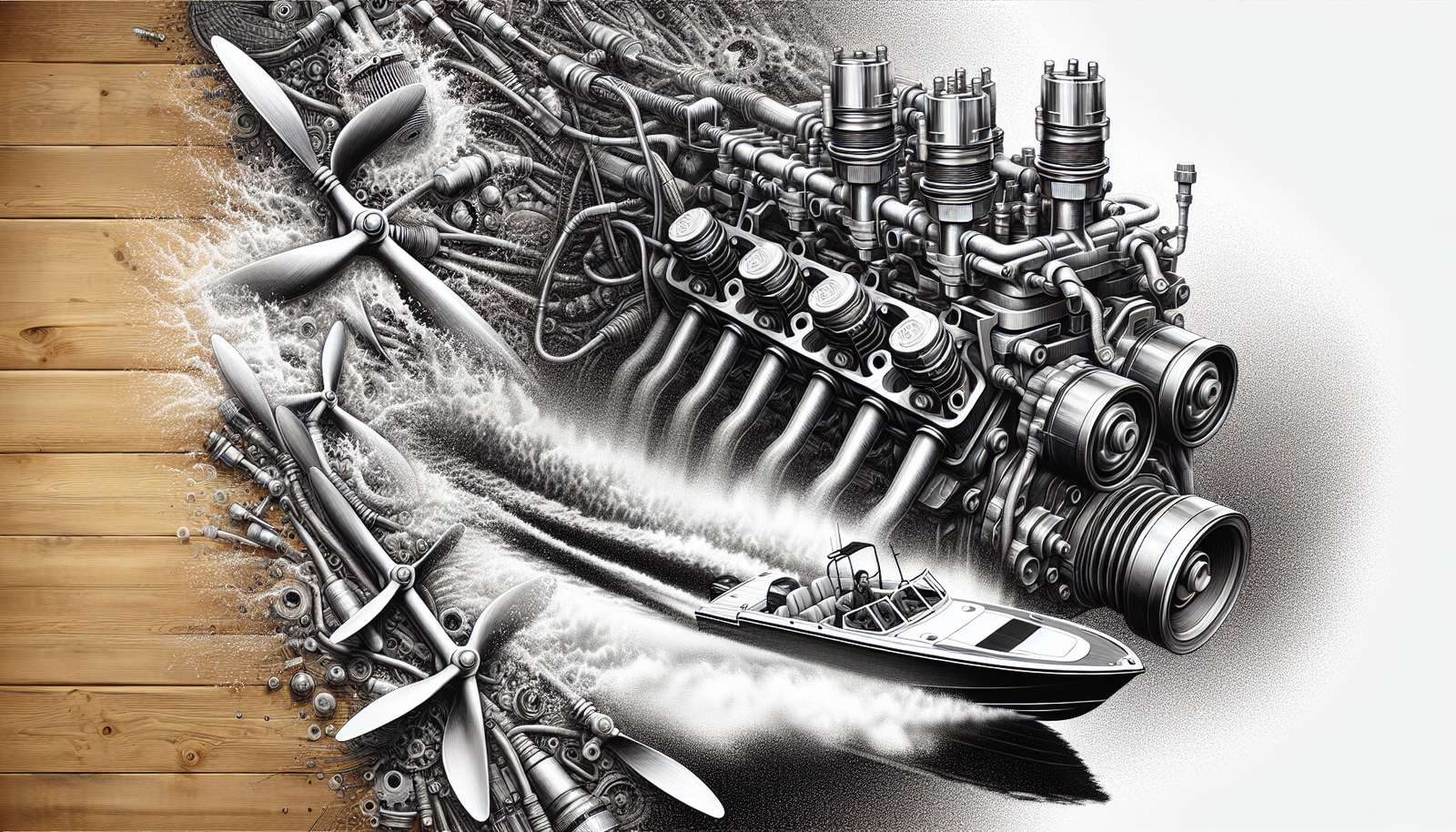Imagine gliding gracefully over the water’s surface, the sun sinking into breathtaking hues beyond the horizon, while your boat purrs like a contented lion under your control…that’s the power of understanding, fine tuning and leveraging your boat engine’s capacity. The objective of this article “How To Optimize Your Boat Engine’s Power And Efficiency” is to enlight our readers on the pertinent how-tos of enhancing their boat engine’s performance, and squeezing out every drop of strength and effectiveness it conceals. You’ll get a fascinating insight into ensuring regular maintenance and making necessary tweaks that can literally shoot your boat’s power and performance up to a whole new echelon. Let’s set sail towards understanding your boat engine’s potentials better.
Understanding Your Boat Engine
Knowing your boat engine is the first step in optimizing its power and efficiency. Boats can house a wide range of engine types including outboard motors, inboard motors, diesel engines, or even jet propelled engines. It’s crucial that you understand what you’re dealing with to properly maintain and optimize its performance.
Knowing the type of engine you have
To start, it’s important to know the type of engine you have. You can find this information in the manual, or directly from the engine itself – there is often a label or plaque somewhere on the engine that will tell you the make, model, and other important information. Be sure to note the horsepower rating, as it gives you a general idea of the engine’s overall power. You also want to note if the engine is two-stroke or four-stroke. Each type has its own set of requirements when it comes to fuel, oil, and maintenance.
Importance of understanding your boat’s specifications
The specifications of your boat are also key to understanding your boat engine’s potential. Factors like the size, weight, and shape of your boat will affect how your engine performs. For example, a lightweight, streamlined boat requires less engine power to move at high speeds compared to a big, heavy boat.
Recognizing the limitations of your boat engine
Remember, every engine has its limits. While you might be keen to get the most speed and power out of your engine, pushing it too hard can result in costly and time-consuming damage. It’s important to understand the manufacturer’s recommendations for your specific engine and stay within those bounds.
Proper Maintenance
Proper maintenance is essential to keep your boat engine performing at its peak.
Routine checks and inspections
Regular checks and inspections are key to catching any issues before they develop into major problems. These include checking for leaks, cracks, or any unusual signs in the engine. You should also inspect the oil and fuel systems for any blockages or contamination.
Timing and frequency of engine tune-ups
Engine tune-ups ensure your engine is running smoothly and efficiently. The timing and frequency of these tune-ups can vary, but as a rule of thumb, you should aim for at least once a year, or every 100 hours of operation.
Replacing worn-out engine parts
Parts of your engine will inevitably wear out over time. Replace these parts as soon as you notice any significant wear or damage. Neglecting to do so can lead to decreased performance and potentially much bigger problems down the line.
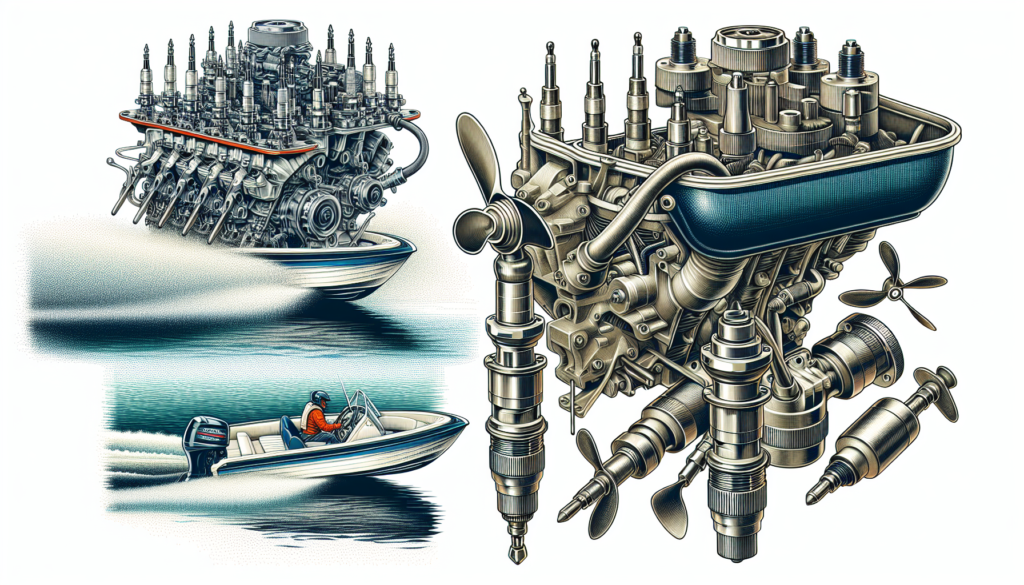
Fuel Quality and Efficiency
The quality and efficiency of the fuel you use has a direct impact on your boat engine’s performance.
Choosing the right fuel for your boat
Different engines require different types of fuel. For instance, two-stroke engines need a mix of oil and gas, while four-stroke engines have separate tanks for each. Diesel engines, of course, require diesel. Make sure to use the right type of fuel for your engine, and follow the manufacturer’s recommendations when it comes to fuel grade.
Impact of fuel quality on engine performance
The quality of the fuel you use can greatly affect your engine’s performance. Poor-quality or old fuel can lead to problems like decreased power, irregular running, and even engine damage. Keep your fuel fresh and of good quality to keep your boat running smoothly.
Importance of proper fuel maintenance to avoid contamination
Fuel contamination is another issue you’ll want to avoid. Water, dirt, or other contaminants can decrease the effectiveness of your fuel and can even damage your engine. Keep your fuel clean by using a fuel filter and regularly draining and cleaning your fuel tanks.
Drive System Optimization
The drive system, which includes your propeller and gear system, is another crucial part of your boat’s performance.
Understanding your boat’s drive system
Your boat’s drive system converts the power from your engine into motion through the water. A well-tuned drive system can significantly improve your boat’s speed and handling.
Ensuring optimum propeller selection and adjustments
Your propeller is a key part of your drive system. The type, size, and pitch of your propeller can all affect your boat’s performance. Make sure to select the right propeller for your boat, and keep it clean, balanced, and well-adjusted.
Regular maintenance of your drive system
As with your engine, regular maintenance of your drive system is important. Check the propeller and other parts of the drive system for wear or damage, and keep everything well-lubricated to prevent unnecessary friction or drag.
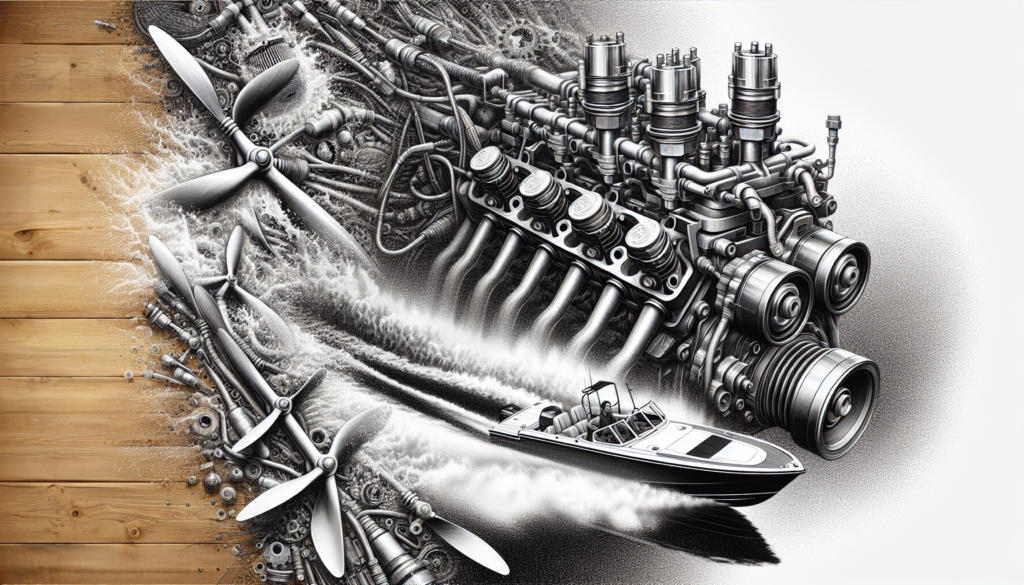
Optimal Engine Tuning
Tuning your engine can optimize its performance and efficiency. This involves adjusting the engine’s operating parameters for the best possible performance.
Significance of tuning your boat engine
Tuning your boat engine can increase its power output, improve fuel efficiency, and make it run smoother. It can also increase the life of your engine by ensuring all its parts are working as they should.
Step-by-step guide on how to tune your engine
To tune your engine, start by checking the spark plugs, distributor cap, rotor, and ignition wires. Replace these parts if necessary. Next, adjust the carburetor to get the right mix of air and fuel. Finally, adjust the timing of the ignition to ensure that the spark plugs fire at the right moment. If you’re not confident in doing this yourself, it’s worth getting a professional to help.
Effects of tuning your boat’s engine to its performance
A well-tuned engine will give you more power, better fuel efficiency, and more consistent performance. It’ll also run smoother, making your boating experience more enjoyable.
Weight and Load Management
The weight and load of your boat can significantly affect the performance of your engine.
Effects of overweighting on engine performance
Overweighting puts unnecessary strain on your engine. This can lead to decreased performance, higher fuel consumption, and potential damage to your engine. Always be mindful of your boat’s weight capacity and avoid overloading.
Balancing load for optimum engine work
The distribution of weight in your boat can also affect its performance. An uneven load can lead to poor handling and decreased speed. Always aim for an even distribution of weight in your boat, both from front to back and side to side.
Importance of proper boat loading on engine’s efficiency
Proper load management can improve the efficiency and handling of your boat. It can make your boat run smoother, use less fuel, and increase the life of your engine.
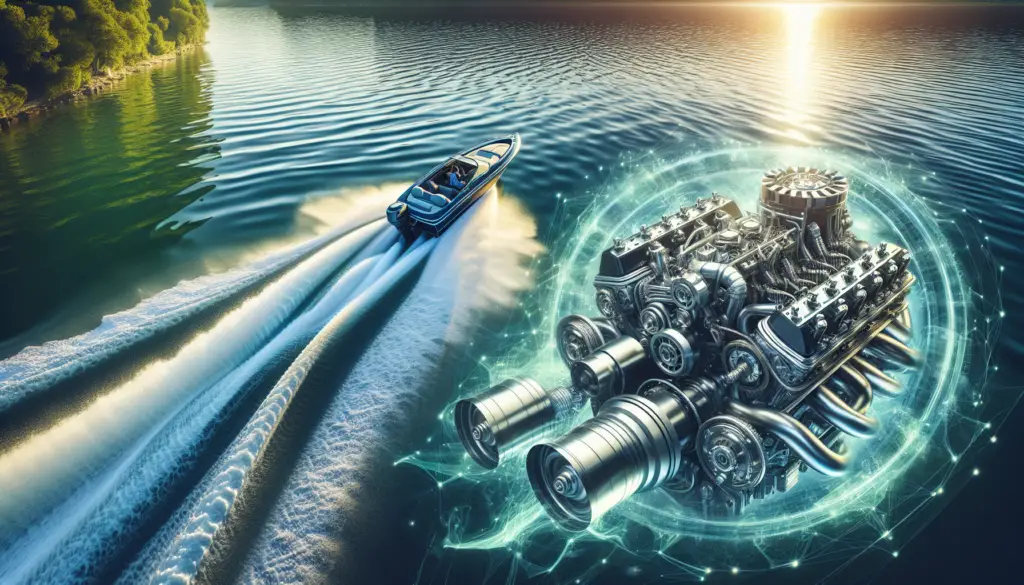
Air Intake and Exhaust Systems
Your boat engine’s air intake and exhaust systems are important for efficient operation.
Understanding the air intake system
The air intake system supplies the engine with the air it needs for combustion. A clean and efficient air intake system can improve the power and efficiency of your engine.
Benefits of a clean and efficient exhaust system
The exhaust system removes the waste gases produced by combustion. A well-maintained exhaust system allows these gases to escape efficiently, preventing backpressure that can decrease engine performance.
How to maintain boat engine’s air intake and exhaust systems
Keep your air intake clean and clear of obstructions for optimum performance. For the exhaust system, check regularly for leaks, cracks, or blockages in the exhaust pipe. Make sure to get any issues fixed promptly to avoid negatively impacting engine performance.
Cooling System Maintenance and Check
The cooling system helps keep your engine from overheating, which is crucial for maintaining its performance and longevity.
The role of the cooling system in a boat engine
The cooling system circulates coolant around the engine, absorbing and dissipating heat. It plays a crucial role in preventing overheating, which can cause serious engine damage.
Maintaining the coolant and levels
Make sure to regularly check and maintain the coolant levels in your engine. Low coolant levels can lead to overheating. Make sure to use the correct type of coolant for your engine, and replace it regularly to ensure its effectiveness.
Dealing with common cooling system issues
Common cooling system issues include leaks, blockages, and mechanical failures. If you notice your engine overheating, leaking coolant, or any other unusual signs, get your cooling system checked and repaired as soon as possible.
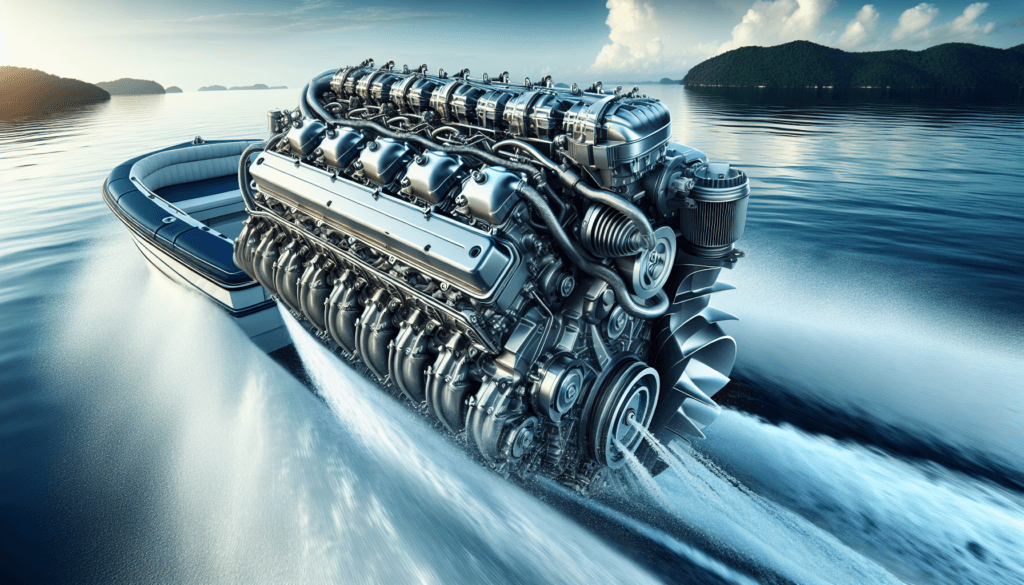
Electronic Control Module (ECM) Optimization
The ECM is the brain of your engine, controlling various elements such as fuel injection, ignition timing, and idle speed.
Understanding the role of the ECM
The ECM controls most of your engine’s operations, adjusting and optimizing them based on data it receives from various sensors. A well-tuned ECM can significantly improve your engine’s efficiency and power.
Optimizing the ECM for better fuel consumption and power
ECM optimization involves adjusting the parameters that the ECM uses to control your engine. This can improve fuel consumption and power output, making your engine run more efficiently.
Regular ECM diagnosis and troubleshooting
As with any other part of your engine, regular diagnosis and troubleshooting of the ECM are important. This helps ensure that the ECM is functioning correctly and can identify and fix any problems before they cause serious damage.
Utilizing Advanced Technologies for Optimization
Advanced technologies can further optimize your boat engine’s power and efficiency.
Adopting fuel optimize technology
Fuel optimize technology, which is often included in modern ECMs, can improve your engine’s fuel efficiency by optimizing parameters like fuel injection timing and air-fuel mix.
Use of engine analysis software for better tuning
Engine analysis software can help you better understand your engine’s performance and identify areas for improvement. This can help you tune your engine more effectively and get the most out of it.
Leveraging GPS for speed and performance monitoring
GPS technology can provide accurate speed and performance data, helping you gauge the effectiveness of your engine tuning and optimization efforts. By regularly monitoring your speed and performance, you can continue to fine-tune your engine for maximum power and efficiency.
Understanding, maintaining, and optimizing your boat engine can greatly improve its power and efficiency. By following these tips and best practices, you can ensure that your boat engine delivers the best performance possible, giving you a smoother, faster, and more enjoyable boating experience.

